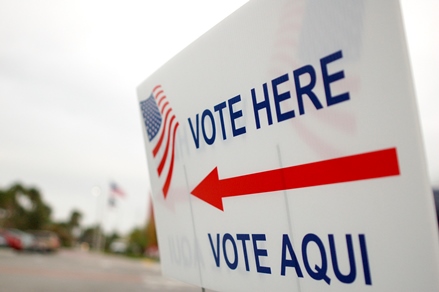Low-Wage Latino Workers Just Want to Do the Right Thing
By Alicia Criado, Field Coordinator, Economic and Employment Policy Project
 Want a reality check on today’s employment situation? Ask someone making less than $50,000 per year.
Want a reality check on today’s employment situation? Ask someone making less than $50,000 per year.
We asked Latino voters about their priority issues right before the election last year and found that while immigration reform was important to them, in today’s economy low-wage workers are concerned with keeping or finding work. They deal with other significant hurdles on a daily basis such as unpaid wages, unpredictable schedules, discrimination, no health insurance, and dangerous working conditions. Similar findings in Oxfam America’s recent survey of low-wage workers show that while most low-wage workers take pride in performing their jobs well, those same jobs do not sustain them and their families financially.
More people are realizing that the recovery has been built on low-wage jobs. In fact, one in four American workers is in such jobs. They accounted for the majority of job growth since the end of the Great Recession, leaving jobseekers with few employment prospects that offer basic economic security.
Latinos workers are young and have the highest participation in the workforce (66.3 percent), but they are also hurt by elevated unemployment (9.3 percent) and poverty (25.6 percent). They are also more likely than other Americans to be employed in the low-wage labor market and work in part-time positions, which rarely afford them access to benefits.
Nonetheless, Latinos are building and strengthening our economy. The Hispanic workforce is vital to several major industries that have added jobs in the past year. Overshadowing this progress, however, is the pervasiveness of low-wage jobs in these industries.
Low-wage Latino workers are increasingly forming the backbone of many essential American industries. They spend hours on their feet doing hard labor and then attend to the needs of their families with wages that are too low to pull them out of poverty, even when they work full time and year-round. The life of the working poor is difficult without a good job that pays a living wage and provides workplace benefits such as paid sick leave, paid vacation time, health insurance, and a retirement plan that their employer contributes to. This reality demands policies that allow low-wage workers to continue to do the right thing: stay in the labor market and provide a better life for themselves and their families.
In an effort to shed light on the vulnerability of workers in the low-wage labor market, NCLR published a collection of stories told by Latino workers called We Needed the Work: Latino Worker Voices in the New Economy. Together, these accounts are a call for policymakers to address the widespread exploitation of workers in low-wage industries and build a more sustainable economic recovery. We offer two important policy recommendations to improve job quality for Latinos and other low-wage workers.
- Raise the wage floor for all workers. Enacting federal legislation such as the “Fair Minimum Wage Act of 2013” would raise the federal minimum wage to $10.10 by 2015 and significantly benefit Latinos, who are overrepresented in low-wage occupations. California recently took this step and passed a bill to raise the state’s minimum wage to $10 over the next three years. Ensuring that low-wage workers can afford necessities such as food, clothing, and rent benefits not only them but also local communities and businesses.
- Ensure that government agencies have the resources necessary to enforce labor laws. The role of government in enforcing labor laws is more important than ever as businesses seek new ways to reduce costs and many workers, including undocumented immigrants, fear losing their jobs if they stand up for their rights at work. Adequate federal budget resources for the Occupational Safety and Health Administration (OSHA) and the Wage and Hour Division (WHD) are necessary to ensure that employers pay the wages they owe, protect workers on the job, and sustain an enforcement system that holds unscrupulous employers accountable for breaking the law.
To do better by low-wage workers is to do better by the whole country’s future.




